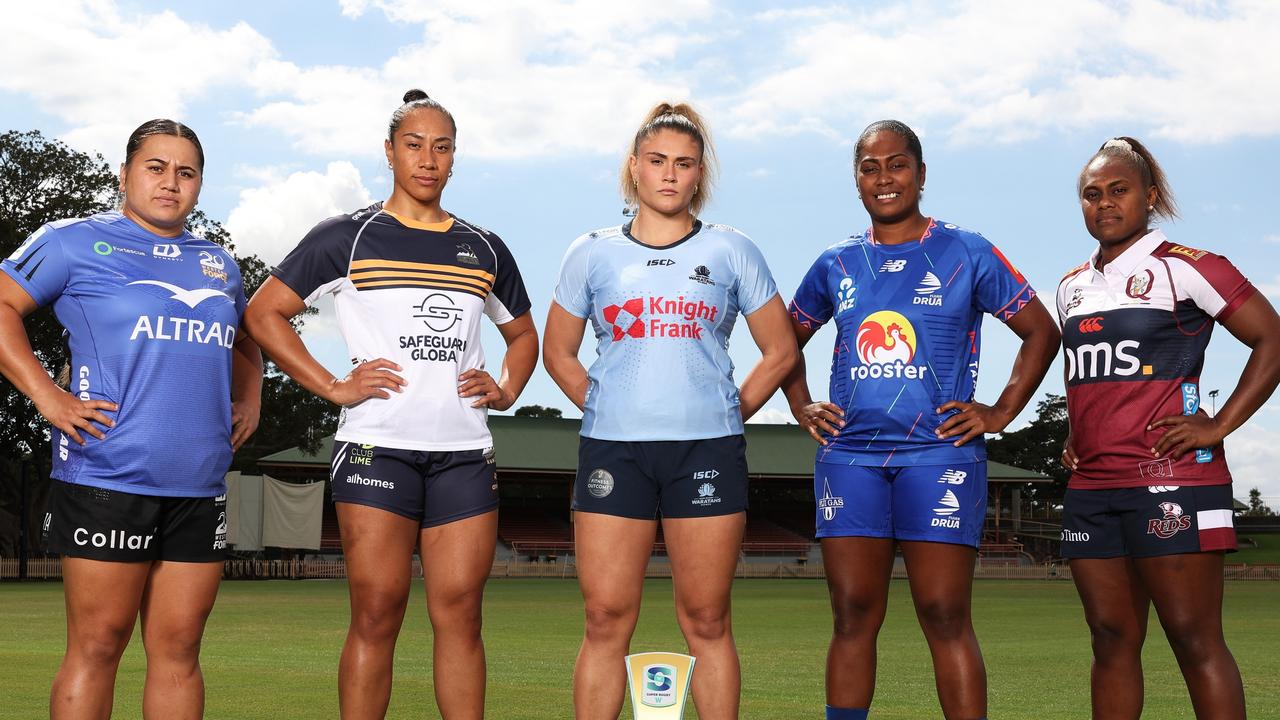Revealed: North Sydney’s top gaming and new tech companies
Sydney’s north shore is becoming home to a growing number of video games and new technology developers. We take a look at the companies and how the industry is set to grow in coming years.
North Shore
Don't miss out on the headlines from North Shore. Followed categories will be added to My News.
A growing list of north shore tech wizards and entrepreneurs are making waves in the booming world of video gaming and new technology as growth in the hi-tech industry reaches new heights in Australia.
North Sydney has become a creative hotbed for the development of video games, educational technology and artificial intelligence with multiple companies choosing to base their operations in the suburb.
Their creations include games where players are taken on mythical quests, space adventures and high-stake underwater journeys to overcome man-eating sharks.
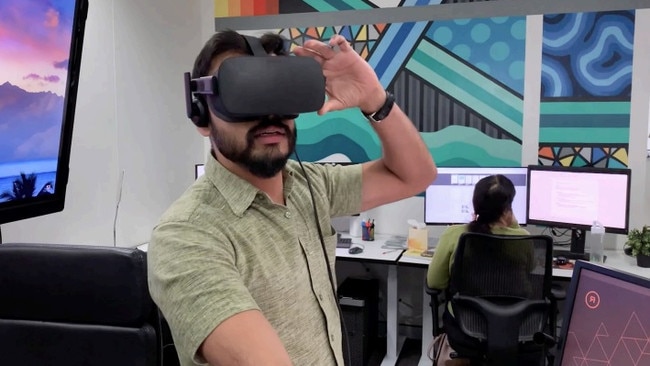
Some of the companies are also involved in creating interactive educational experiences while others are setting new standards in the development of hi-tech audio and visual software.
Many of the developers have also taken advantage of the millions of extra global citizens turning to games during the COVID-19 pandemic as a way of staying connected, entertained and distracted in otherwise uncertain and isolating times.
Figures released by Australia’s Interactive Games and Entertainment Association in January shows the gaming industry has grown by a staggering 29 per cent since 2019 with the sector employing more than 1200 people across Australia.
The North Shore Times takes a look at some of the innovative businesses based in the region.
BLOWFISH STUDIOS
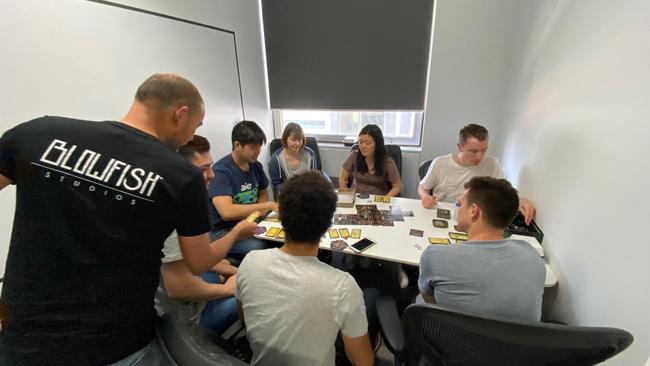
Independent game development company Blowfish Studios is a success story of the local gaming industry.
Founded by two mates in 2008, the studio hit the big time with their mobile strategy game Siegecraft which topped 1.5 million downloads and hit the number one spot on US gaming charts.
Fast forward to today, and the studio not only creates its own games but publishes games devised by outside companies and has produced games for clients including book publisher Scholastic.
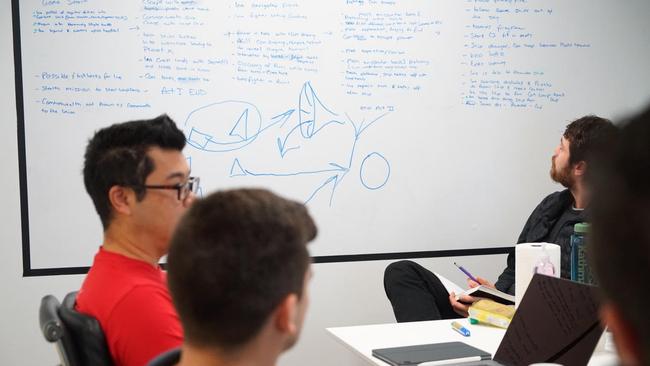
“We had some early successes so we decided to quit our jobs and make a go of it,” the studio’s co-founder Ben Lee said.
“It’s been a journey – you build up a fan base and a reputation and you’re constantly looking at ways of engaging (players).”
Mr Lee said the industry had seen vast changes over the last decade including advancements in technology and increased competition driven by the ease in which games can now be produced.
“Since we started making games the software has come a long way – you’re constantly looking to stay on top of the most current hardware to optimise the gaming experience,” he said.
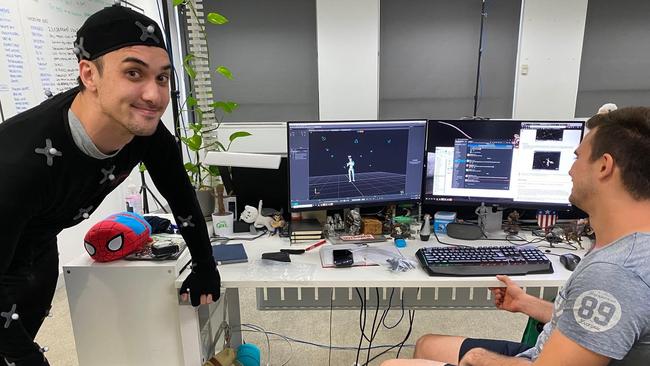
“The game playing community has also been growing every year – we saw an uptake during Covid but also a very large increase in competition from the larger publishers.
“Every month now there are two to three times the amount of games being released.”
“Game development is getting bigger and bigger and technology has made it a lot more accessible to everybody.
“It highlights the importance of putting more effort into creating better visuals and game play.”
The studios currently has 27 staff and creates content not only for Australian audiences, but gamers around the world.
3P LEARNING
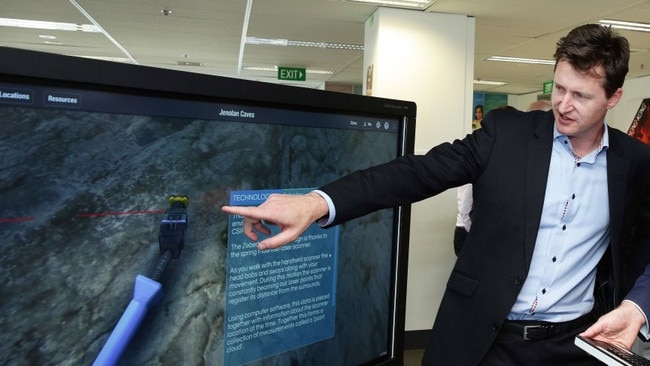
Mathletics is one of the many educational platforms developed by 3P Learning – an international gaming company used by students in more than 100 countries.
Based in North Sydney, the company develops interactive platforms that blend the world of gaming with educational resources as a way of engaging students and keeping learning fun.
The company’s technology has also become a household fixture during the COVID-19 pandemic that saw homeschooling become part of the curriculum.
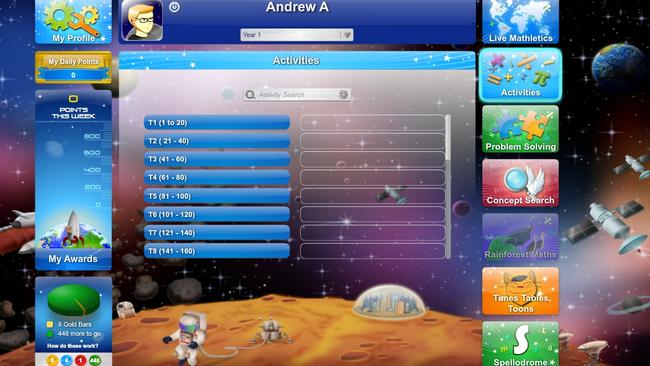
A company spokesman said the pandemic has also led to an increase in teachers becoming confident using technology to deliver learning.
“We conducted research that found 16 per cent of teachers were not confident using technology to deliver learning before the pandemic – that figure has now dropped to seven per cent,” he said.
“The (pandemic) has harnessed different ways of learning. Online learning is no longer novel. It’s an established part of the learning landscape.”
The company also develops learning toolkit programs for schools and teachers and maths and literacy programs.
ROTOR STUDIOS
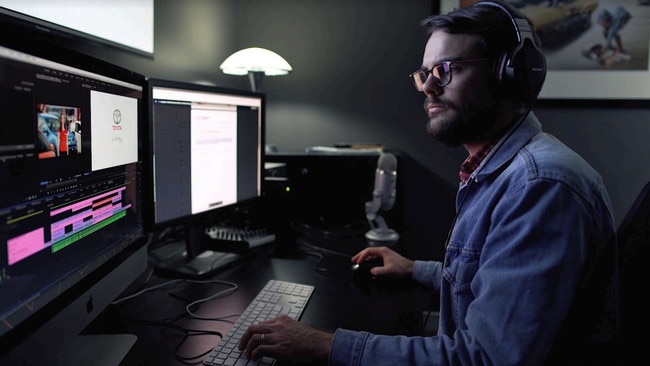
If you’ve ever sat through a TV ad break, there’s a good chance you’ll have seen the work of North Sydney tech firm Rotor Studios.
The award-winning studio creates world-class visual content ranging from virtual experiences to photo realistic computer generated cars used in advertising material for global brands such as Toyota.
What began as a 20 person team more than a decade ago and has now grown to a company employing more than 90 staff along with representatives in overseas markets including Japan and Canada.
The company’s head of operations Peter Brennan said the studio’s work includes producing computer generated imagery for clients and developing software to deliver and store information.
“We work a lot with Toyota and Lexus in Australia to create car assets – we render them, and sometimes make whole cities and environments from scratch,” he said.

“We also create virtual reality projects where people can put on glasses and see environments through a car. For example we’ve done work for Dreamworld that involved building a virtual roller coaster and reality.”
Mr Brennan said staying on top of advancements in technology was among the keys to the company’s success.
“When we started, 3D was a lot more primitive – all our learnings are from years of practice and we’re constantly refining and building what was done before,” he said.
The company’s portfolio also includes creating hi-tech education material for children to learn about recycling by virtually walking through a recycling facility.
3RD SENSE
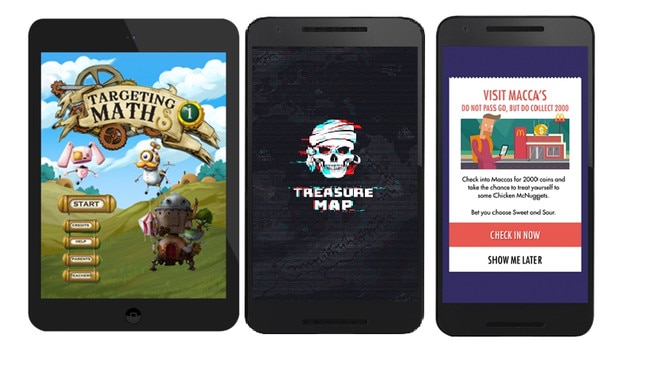
The gaming industry is not just aimed at teenagers, with a North Sydney company carving out a reputation as one of the country’s top developers of ‘serious games’ and gamified apps.
Since its launch in 2001, 3rd Sense has worked for clients ranging from start-ups to multi-billion dollar companies and government agencies on projects including educational material and games supporting the health and wellbeing of users.
The projects have included an engagement platform for global pharma giant Pfizer, promotional games for McDonalds aimed at driving customers to stores by redeeming vouchers, and a groundbreaking music-based game supporting cochlear patients to engage and connect with music.
“We typically create games and other software for businesses rather than pure entertainment – a lot of it is based around learning or promotional games,” the company’s chief executive Colin Cardwell said.
“There’s still a big perception that games are for kids or young adult men, but in reality all ages play games.
“There’s an amorous amount of power you can tap into by engaging with someone’s fun side and it’s incredible what you can learn through games-based simulations
“You get a much richer and deeper experience.”
The studio started as a two-person team and has grown to a team of about a dozen employees over the last 20 years.
LITERATU
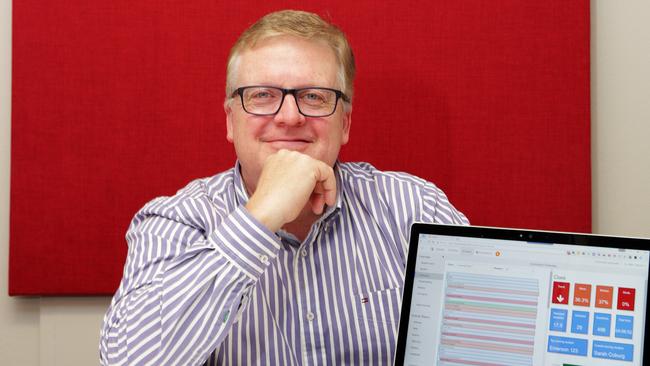
An artificial intelligence company that creates interactive material aimed at improving written communication skills has reached more than 100,000 students across Australia and Asia.
In a world increasingly dominated by texting and emojis, Literatu has taken English skills back to basics through a platform called Scribu that works in Google, Microsoft Word and online environments.
The company’s founder Mark Stanley said the program gives students and teachers insights as they write by providing feedback on sentence structure along with the lengths of paragraphs and tips to avoid tautology.
“It’s more than just spellcheck – students can get improvement narratives that breaks down the elements of writing to improve by looking at cohesion and sentence links,” he said.
“Its about building skills in a way that’s interactive.”
Mr Stanley said the technology was also aimed at addressing the decade-long decline in NAPLAN scores for writing.
“In some ways we’ve clogged up the curriculum – the staples used to be reading, writing and arithmetic and now we try and do everything,” he said.
The company has also developed data software for schools and teachers that tracks student progress over time and highlights areas of improvement.
“It took a long time to develop the software – we incorporated input from teachers and trained the system to know what to say – it was like creating an artificial brain,” Mr Stanley said.
OTHER COMPANIES
It is no secret that Sydney’s tech industry is booming, but one of the driving factors seems to be the entrepreneurial forces based on the north shore.
The list of innovative companies in the region including Koch Media Group – a global developer, publisher and distributor of video games, VR games, gaming hardware with its Australian headquarters in North Sydney.
Founded more than 25 years ago, the company owns nine development studios that creates content for games consoles, computers and virtual reality platforms.
It operates video game publishing labels such as Deep Silver and has produced games including Agents Mayhem, Maneater, Dead Island and Homefront the Revolution.
Other north shore companies making their mark on the tech world include app and gaming developer Limpid Logic.
Founded in 2011, the company has taken on a range of daring projects involving “wearable tech” and augmented and virtual reality.
The region’s success as a tech hub was recently reflected in a study by Deloitte, which named several suburbs in the region among those leading the way in the “knowledge economy”.
Suburbs making an appearance in the list alongside the CBD and Pyrmont including North Sydney, Neutral Bay, Chatswood and Lane Cove in what’s been dubbed the “arc of innovation”,
FUTURE GROWTH
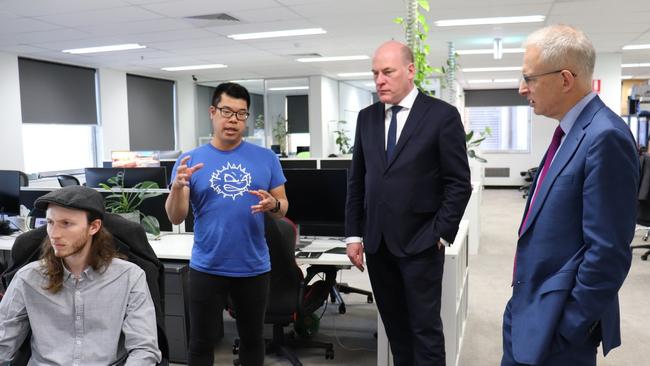
Australia’s first-ever tax offset for game development was announced in this year’s Federal budget in a move to supercharge the local interactive game industry.
The announcement has been welcomed by the industry, which has spent more than a decade advocating for government support for the industry.
The offset will enable games businesses that spend a minimum of $500,000 on qualifying Australian games expenditure to receive a 30 per cent refundable tax offset.
It’s a similar concept to the offsets used for the local film industry, which has proved vital to Australian film making.
The Interactive Games and Entertainment Association said the offset would give local development studios the boost they need to compete on the world stage.
The global video games industry is worth approximately $250 billion – more than the entire global film, home entertainment and streaming industries combined.
North Sydney Federal MP Trent Zimmerman hopes the move will encourage more companies to set up a base on the north shore.
“North Sydney houses a flourishing interactive game industry – making it one of the most dynamic hubs for the sector,” he said.
“The tax offset will lead to many more studios that are backed by global gaming companies being established in Australia and hopefully in North Sydney as well – it’s the logical place to be.
“It will also allow Australian developers to produce more games for overseas export and means more local jobs for talented developers.”




